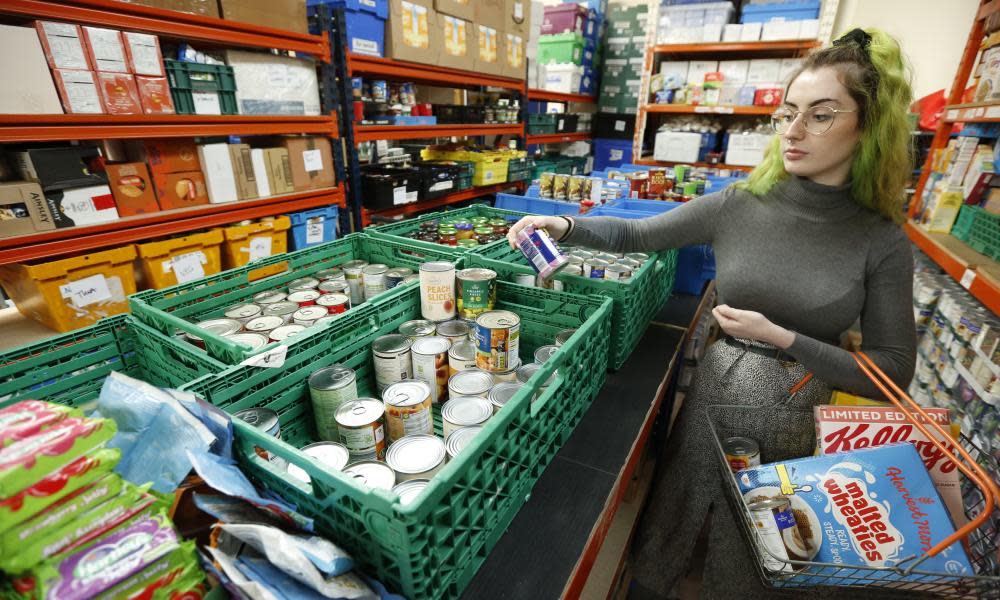The Guardian view on benefit levels: the only way is up

A social security system that leaves 14.5 million people living in poverty is failing. Payments must increase
Benefit levels are set too low. The social security budget was £36bn less in 2019 than in 2010, and the basic rate of out-of-work benefits is at its lowest for 30 years. Repeated freezes combined with the benefit cap and two-child limit, and rising housing costs, have hit millions of households hard. The consequences have included massive rises in the number of people needing support from food banks and other forms of crisis support, even before the pandemic.
The prospect of energy price rises has led to warnings that more households face horrendous decisions about whether to “heat or eat”. Research by the campaigning food writer Jack Monroe on supermarket basics ranges shows that price increases on the lowest-cost items have far outstripped averages. The price of the cheapest pasta in a local branch of Asda, for example, has risen 141% in a single year.
Lifting working-age benefits by about 6% in April, instead of the 3.1% that is planned, would cost around £3bn a year in total. If the rise were applied to pensions as well, the cost would be £4.5bn. The Institute for Fiscal Studies thinktank has warned that the alternative is a £290 real-terms fall in the value of benefits for around 10m households. With lone parents and their children, children with two or more siblings, disabled people, unpaid carers and single pensioners the most likely people to be poor – the shocking figure for children in three-child families is 47% – it ought to be clear that there is a limit to what incentives for work can achieve. As a report from the Joseph Rowntree Foundation put it last week, what ought to be a “poverty-fighting social security system” has become, at least in part, a poverty-reinforcing one.
The £20 uplift in universal credit offered some relief during the pandemic, although it never reached those claimants who had not made the switch to UC from the old system. Cutting it in the autumn was a mistake by the government and recognised as such by Tory former welfare secretaries as well as the government’s opponents. The effect has been mitigated for some households by other changes, including a reduction in the taper rate (meaning that in-work claimants can hold on to more of their earnings). But others will see their incomes shrink, while inflation is predicted by the Office for Budget Responsibility to remain above 3% until 2023.
Under Conservative prime ministers since David Cameron, keeping benefits as low as possible has been a central aim of welfare policy. Universal credit worked reasonably well from a technical point of view during the pandemic, with millions of new claims processed. System flaws such as the lengthy wait for initial payments remain. So does the potential for future disasters caused by the punitive sanctions regime, which has led to numerous deaths already. But with 22% of the population, or 14.5 million people, living in poverty even before the pandemic, and 2.4 million of these experiencing the most severe form of poverty, known as destitution, the most important point is that the social security system does not support people – including millions of those who are not expected to work, either because they are children, pensioners, disabled, or carers – by providing them with enough money to live on. The results, including children going hungry, are needlessly cruel and destructive. Benefits need to increase.

 Yahoo News
Yahoo News 
